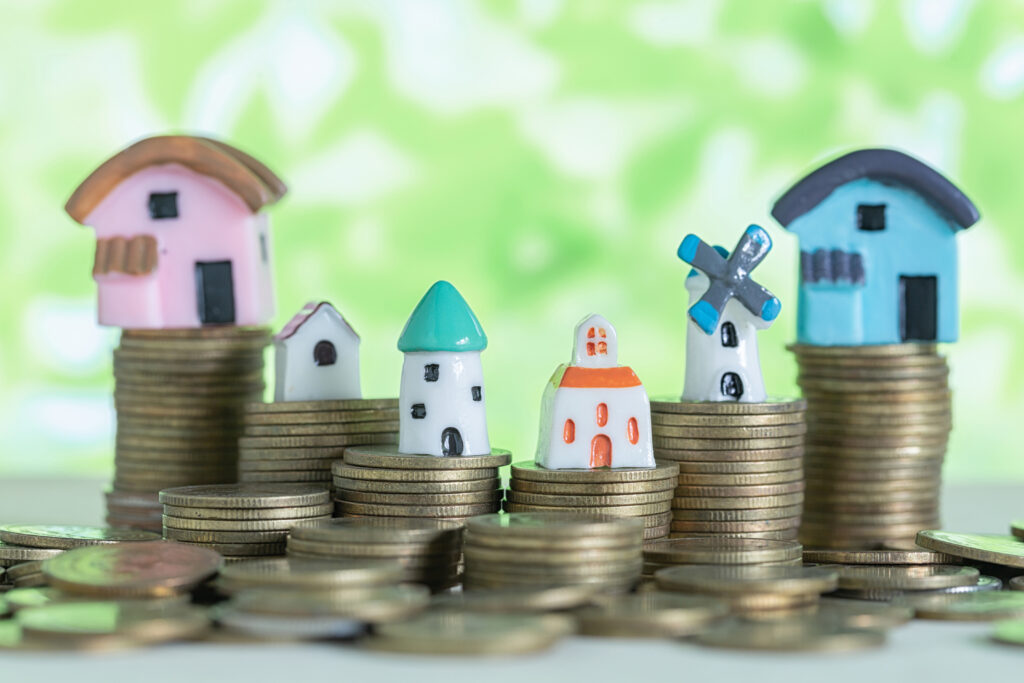It is a known fact that real estate does not come cheap and as much as you hear “invest in real estate” it is simply not what you will tag as affordable for the average man. Where does fractional real estate investment come in? Well, fractional investment is literally saying “Hey, you don’t have enough money? Don’t worry, you can own a piece of a thriving company like Tesla or a luxurious beachfront property in Ikoyi”
Fractional real estate investment allows you to purchase a portion of a property, instead of the entire thing. Imagine a Waterview property valued at 500,000,000 naira. With fractional investing, you can buy a fraction (say, 1%) of that property for just 5,000,000 naira. This democratizes real estate investment, making it accessible to individuals with smaller budgets.
There are several compelling reasons to consider fractional investments:
- Accessibility: As mentioned earlier, fractional investing allows you to participate in high-value assets that would otherwise be out of reach. This opens doors to a wider range of investment opportunities.
- Diversification: Imagine pouring your life savings into a property, only to see it decline due to economic recession or demolished due to a natural disaster. Phew! It is scary just thinking about it. Fractional real estate investing offers a savvier approach. By letting you own a slice of various properties across locations and types, you spread your investment risk. A dip in one market might be offset by a boom in another. Plus, even if a tenant skips out on rent in one unit, your income from other properties can help keep the bills paid. This diversification strategy helps you build a more resilient portfolio.
- Lower Minimums: Traditionally, buying real estate, especially in prime locations or for specific property types, requires a significant down payment. This can be a major barrier for many investors. Fractional real estate investment flips this script by offering significantly lower minimum investment amounts.
A 2-Bedroom apartment in Lekki Phase 1 will be valued at N200,000,000 at an average. A standard down payment might be 30%, which translates to a whopping N60,000,000 upfront investment. This is a hefty sum that excludes closing costs and potential renovations. With fractional real estate, you can invest in a portion (say, 0.5%) of the same apartment. That translates to just 1,000,000 naira, making prime locations and desirable property types accessible with a much smaller initial investment.
- Reduced Management Hassle: In some cases, particularly with real estate, fractional investing offers professionally managed properties. You reap the benefits of rental income or property appreciation without the hassle of tenant management or maintenance.

Types of Fractional Real Estate
- Direct Fractional Ownership: This is where you become a micro-landlord. You purchase a share of a specific property, be it a terrace duplex or apartment. You’ll receive a portion of the rental income generated by the property, proportional to your ownership stake. Additionally, you benefit from any potential appreciation in the property’s value.
- Real Estate Crowdfunding: This approach involves pooling your resources with other investors to collectively purchase a property. Unlike direct ownership, you might not have a say in the specific property chosen, but you still enjoy a share of the rental income and/or potential value growth.
- Real Estate Investment Trusts (REITs): Think of REITs as publicly traded companies that own and manage a diverse portfolio of income-producing real estate. By investing in shares of a REIT, you gain exposure to the real estate market without the hassle of directly owning or managing any properties. REITs are traded on stock exchanges like any other stock, offering a level of liquidity not typically found in direct ownership or crowdfunding.
Fractional Investment Potential Drawbacks
- Limited Control: As a fractional owner, you have less control over the property compared to a sole owner. Decisions like renovations or tenant selection might be handled by the platform or a majority vote.
- Illiquidity: Fractional investments can be less liquid than traditional real estate. Selling your share might take longer compared to selling a whole property.
- Platform Dependence: Your success hinges on the platform’s management. Research the platform’s track record, fees, and security measures before investing.
- Potential for Conflicting Interests: In some cases, the platform managing the property might also have its own investments in the same asset. This could lead to potential conflicts of interest.
While fractional investing offers exciting possibilities, it’s crucial to approach it with due diligence:
- Platform Research: Not all platforms are created equal. Research different platforms, focusing on their track record, security measures, and investment structures.
- Investment Analysis: Don’t just blindly invest. Carefully evaluate each offering, considering factors like asset type, location, historical performance, and projected returns.
- Understanding the Risks: Fractional investments carry inherent risks. There’s a possibility of asset value decline, illiquidity (difficulty selling your share quickly), and potential reliance on the platform’s management for success.
Fractional investing is a powerful tool that can transform the way you invest. By understanding its benefits, limitations, and different asset classes, you can leverage this innovative approach to build a diversified and potentially rewarding portfolio, one slice at a time.
Check out our Instagram Page
Check out our Properties








2 Comments
Allen Alfred Francis
8 months agoI think fractional crowdfunding is the most realistic way for novice investorsto get into the practice. I think it can also be like basic training to get into real estate. Real estate is so volatile, I think people assume it is easy because they watch real estate flipping shows and neglecting to understand the people in those shows are well-experienced experts. People don’t consider the time management and physical sacrifices involved in maintaining real estate. It requires a lot of knowledge and local research to optimally enter the real estate market too. Fractional investing is a great way to get started.
Orezina Iteire
8 months agoWe completely agree with you! Fractional crowdfunding is an excellent way for novice investors to dip their toes into real estate without taking on too much risk or overwhelming responsibility. It offers a lower barrier to entry and allows people to learn the ropes of real estate investing while diversifying their portfolios. You also make a great point about the misconception created by those “flipping shows”—real estate investing is a lot more complex and hands-on than it often appears on TV. The time commitment, local market knowledge, and physical demands can be intense. With fractional investing, people can gain exposure to the market and get a feel for how it works without the pressure of managing properties themselves. It’s definitely a smart way to build up experience before taking the leap into full-scale real estate investing. Thanks for sharing your thoughts!